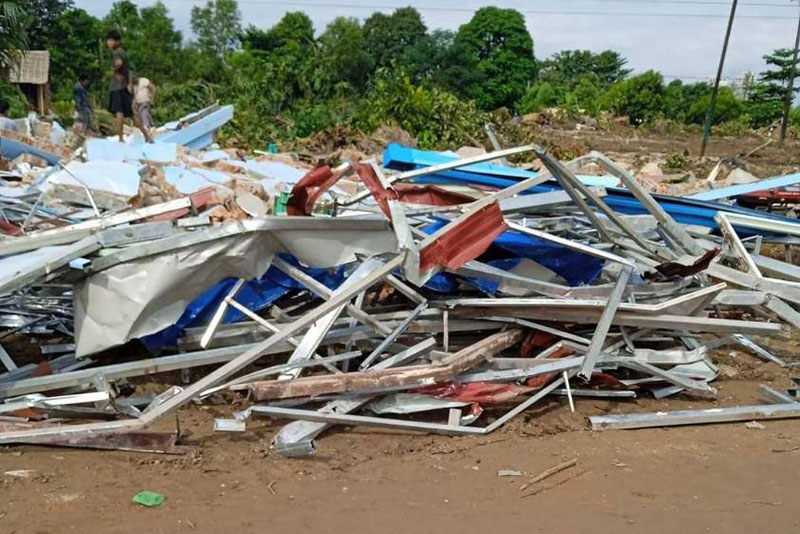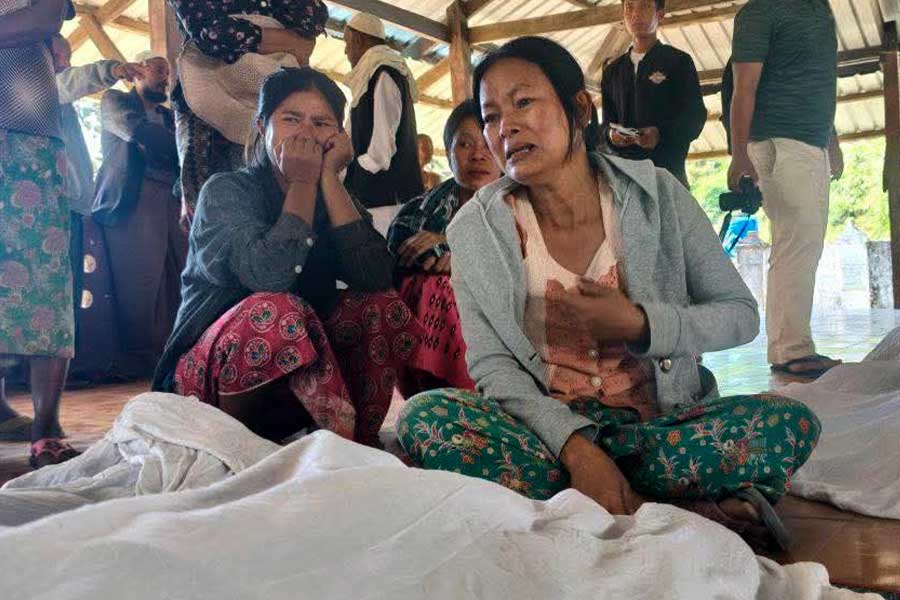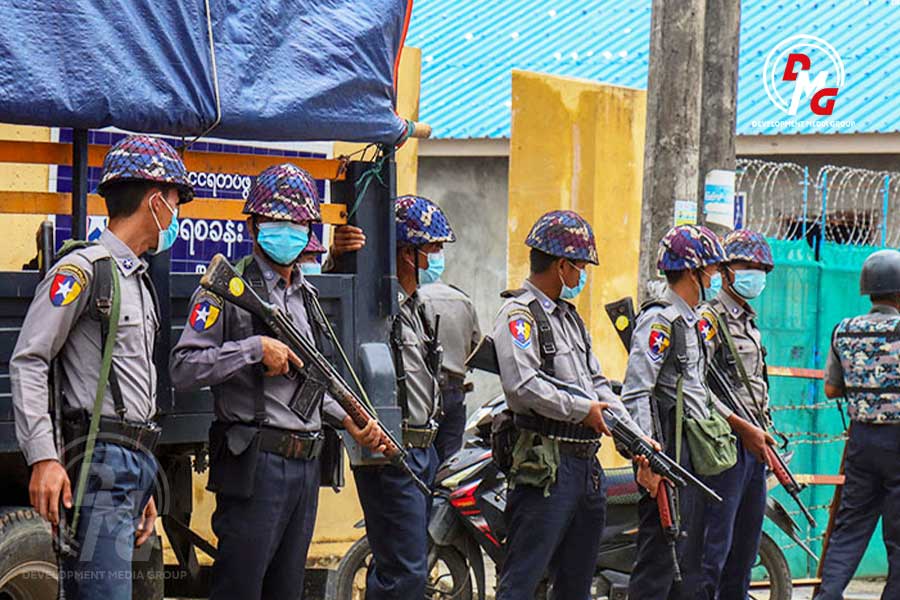- Junta expands naval presence along Arakan coast to regain lost territory
- Nearly 70 civilians and POW family members killed or injured by junta attacks in Arakan State in one month
- Junta accused of extorting money from detained Muslims in Sittwe
- Weekly Highlights from Arakan State (Jan 26 to Feb 1, 2026)
- Arakanese youth stabbed in Mae Sot urgently needs financial aid for medical treatment
Evicted Arakanese migrants face hardships in Yangon
More than 3,000 Arakanese people who were recently evicted from Defence Ministry-owned land in Yangon are struggling to make ends meet.
27 Dec 2022

DMG Newsroom
27 December 2022, Yangon
More than 3,000 Arakanese people who were recently evicted from Defence Ministry-owned land in Yangon are struggling to make ends meet.
A total of 5,688 people from 1,422 households in a ward in Yangon’s Mingalardon Township were evicted by the regime, which alleged that they were squatting within the Pyinmabin industrial zone, which is owned by the junta’s Defence Ministry. Some 200 junta soldiers, police, departmental staff and labourers began removing their houses on November 26.
Arakanese residents account for some 70 of the households evicted.
“We have been facing various hardships since our houses were demolished. Things are harder for people who don’t have money. It appears some even have to beg for survival. I have lost my home [in Arakan State], and I have lost my accommodation here,” said U Aung Kyaw Mya.
One month since their removal, the evictees have received no assistance, he added.
They include migrants from Arakan State’s Sittwe, Kyaukphyu, Ramree, Ponnagyun, Kyauktaw, Mrauk-U and Minbya townships who came to Yangon to earn a living.
The Arakanese migrants have been struggling badly after being made suddenly homeless, said Daw Sandar Aye, who was among those evicted.
“My husband had to work for five years abroad to build a one-storey brick house. We have only lived in that house for two years. It is difficult for us to build a new house while prices have increased a lot,” she added.
Among the buildings demolished were huts, brick houses, monasteries and nunneries. The evicted residents have denied squatting in the industrial zone, saying they legally bought the lands with written agreements.
Residents were notified just one week before the planned demolition, said evictee Ko Thant Zin Oo.
“We had no time to prepare. Things would have been different if we had time. We submitted a petition, but there was no response. They did just as they pleased. We are in deep water amid price hikes,” he said.
Many evicted households have school-age children.
One student’s mother, Daw Than Tin Aye, said: “There are many school-age children. And it is not easy to transfer them to other schools. Those who have moved to Thingangyun have to send their children back to the school here. While it is tiring for children, parents have to incur unnecessary costs.”















.jpg)

